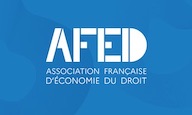Enhanced capacities and performance of algorithms enable economic agents to
delegate an increasing part of their decisions to algorithms. A distinctive
feature of these algorithms is their velocity, i.e. their ability to make a
decision at a rapid pace as compared to human decision-making. For a firm,
pricing is a key strategic decision that needs to be frequently updated and
for which algorithms' velocity can be profitably exploited. In this paper,
we study to what extent the use of a rapid algorithm facing a human
decision-maker can be employed as a commitment device by a firm in a pricing
context. For that, we consider a theoretical two-period model based on an
Hotelling framework. Preliminary results suggest that the market outcome
resulting from this setting is characterized by softer competition as
compared to a situation in which a firm can only manually adjust its price.
- Poster

 PDF version
PDF version

